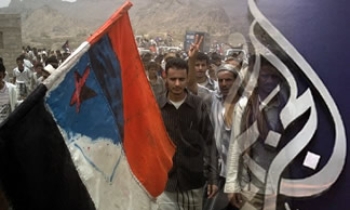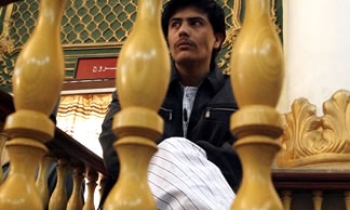WASHINGTON - Military officials for the first time yesterday detailed and broadly defended a Pentagon program that pays to plant stories in the Iraqi media, an effort the top U.S. military commander said was part of an effort to "get the truth out" there.
But facing critics in the United States - including lawmakers from both parties - the military raised the possibility for the first time of making changes in the program.
"If any part of our process does not have our full confidence, we will examine that activity and take appropriate action," said Lt. Col. Barry Johnson, a military spokesman in Iraq. "If any contractor is failing to perform as we have intended, we will take appropriate action."
Johnson did not specify what changes, if any, might be considered.
The remarks came after days of reports and criticism that the military was covertly planting in the Iraqi media stories that, while factual, gave a slanted, positive view of conditions in Iraq.
U.S. military officials in Iraq said articles had been offered and published in Iraqi newspapers "as a function of buying advertising and opinion/editorial space, as is customary in Iraq."
Coalition forces compiled the material, and the Washington-based Lincoln Group was authorized to pay Iraqi papers to run the articles, which were supposed to be identified in that way, said Sen. John Warner, R-Va., chairman of the Senate Armed Services Committee.
Warner, who went to the Pentagon yesterday for an explanation, said the program was carefully monitored by military leaders and was reviewed by attorneys to ensure it complied with the law.
Warner said if true, the practice of paying someone to plant favorable stories without disclosing it would be wrong - and he was confident the military leaders would agree.
"They do not support any practices which is not in keeping with the long-standing traditions of our journalistic profession in this country," Warner said. "I'm sure, while it wasn't addressed specifically, they would strongly object to any practices that were inconsistent, particularly involving payoffs."
But Warner and military leaders, including Gen. Peter Pace, chairman of the Joint Chiefs of Staff, also offered a stern defense of the program.
"Things like this happen. It's a war," Warner said. "The disinformation that's going on in that country is really affecting the effectiveness of what we're achieving, and we have no recourse but to try and do some rebuttal information."
Pace told the Associated Press: "We want to get the facts out. We want to get the truth out."
In Baghdad, Johnson, the military spokesman, said third parties such as the Lincoln Group were used to market the stories to reduce the risk of retaliation against the publishers.
He also sounded a theme that has become central to the military's defense of the program: a need to counter lies put out by the enemy in Iraq.
"The information battlespace in Iraq is contested at all times and is filled with misinformation and propaganda by an enemy intent on discrediting the Iraqi government and the coalition, and who are taking every opportunity to instill fear and intimidate the Iraqi people," he said.
The stories in Iraqi newspapers often praise the efforts of U.S. and Iraqi troops, denounce terrorism and promote the country's reconstruction efforts, according to a report in the Los Angeles Times. The Times said documents it obtained showed that the Baghdad-based newspaper Al Mutamar was paid about $50 to run one of the stories, which had the headline "Iraqis Insist on Living Despite Terrorism" on Aug. 6.
Lincoln Group spokeswoman Laurie Adler issued a statement yesterday saying that the company has worked with the Iraqi media to "promote truthful reporting."
A Pentagon spokesman said it was not clear whether the program violated the law or Pentagon policy.
The Lincoln Group has at least two contracts with the military to provide media and public relations services. One contract, for $6 million, was for public relations and advertising work in Iraq.
The other Lincoln contract, which is with the Special Operations Command, is worth up to $100 million over five years for media operations with video, print and Web-based products. *"









